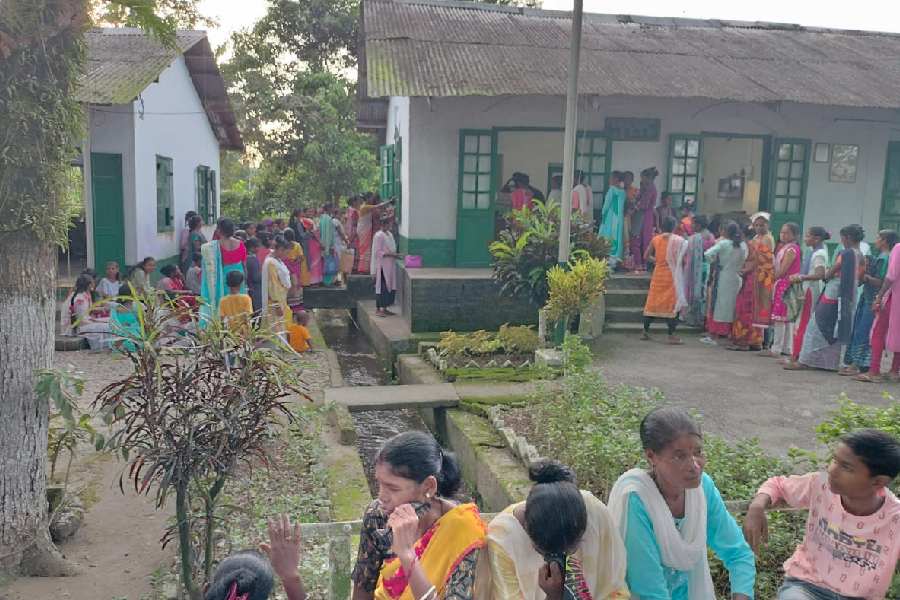Tea garden workers from Darjeeling hills started demonstrating in hill gardens on Tuesday, demanding that bonus meetings be convened by the garden management as early as possible.
The tea management sources, however, told The Telegraph that the hill unions had left little ground for negotiations after their one-point demand for a 20 per cent bonus this year.
The annual bonus rate is expected to be negotiated between the unions and
the management.
Nine hill unions affiliated to all active trade unions from the hills have formed a united forum to negotiate the annual bonus this year.
“Across the hills, tea garden workers held gate meetings and demanded that the management convene the bonus meeting immediately. The last meeting was held on September 2,” said a
union leader.
Sources in the management, however, said that the united front had submitted a memorandum to the management on September 10.
“In the memorandum, the unions have stated that bonus must be distributed at the rate of 20 per cent (of the workers’ total annual earning),” said
a source.
The management said that the “specified demand” has “left no space for negotiations”.
“Where is the space for negotiations when unions have already said that their demand is 20 per cent and nothing less,” said the management source.
The demand was placed by nine major operating unions from the hills.
This year, the unions, which are affiliated to different political parties, have decided to bargain collectively for the bonus, unlike in the other years.
Observers, however, believe that the management of tea gardens, which has already expressed their apprehension about distributing bonus of more than 8.33 per cent, is trying to avoid a direct bonus negotiation.
The minimum bonus according to statutory laws is 8.33 per cent. The highest is 20 per cent.
“Last year, following a stalemate between the unions and the management, the state government had intervened to fix the bonus rate. The Darjeeling hill management seems to be following the same strategy this year,” said an observer.
Last year, Kallol Banerjee, the additional labour commissioner, north Bengal zone, had issued an advisory to the Darjeeling Tea industry to pay a bonus at the rate of 19 per cent. The percentage was similar to that agreed for Dooars and Terai tea gardens.
However, the advisory also stated that the “financially stressed garden” could settle the bonus rate by the management and the trade unions “at the local level”.
Bonus negotiations have never been smooth in north Bengal’s tea industry.
In 2019, hill leader Binay Tamang sat on a hunger strike for 20 per cent bonus. Unions from Darjeeling have also threatened agitation this year.
However, many have also alleged that political parties and their affiliated unions do not put much pressure on the management on the bonus issue.
“In the past hill union leaders have maintained that they would ensure bonus negotiation starts when the first flush is plucked in March so that they can put pressure on the management,” said an observer.
This meeting has never been held. The planters, too, are opposed to meeting during the first flush period.
The Darjeeling tea industry, which includes 87 gardens, employs around one lakh workers.











